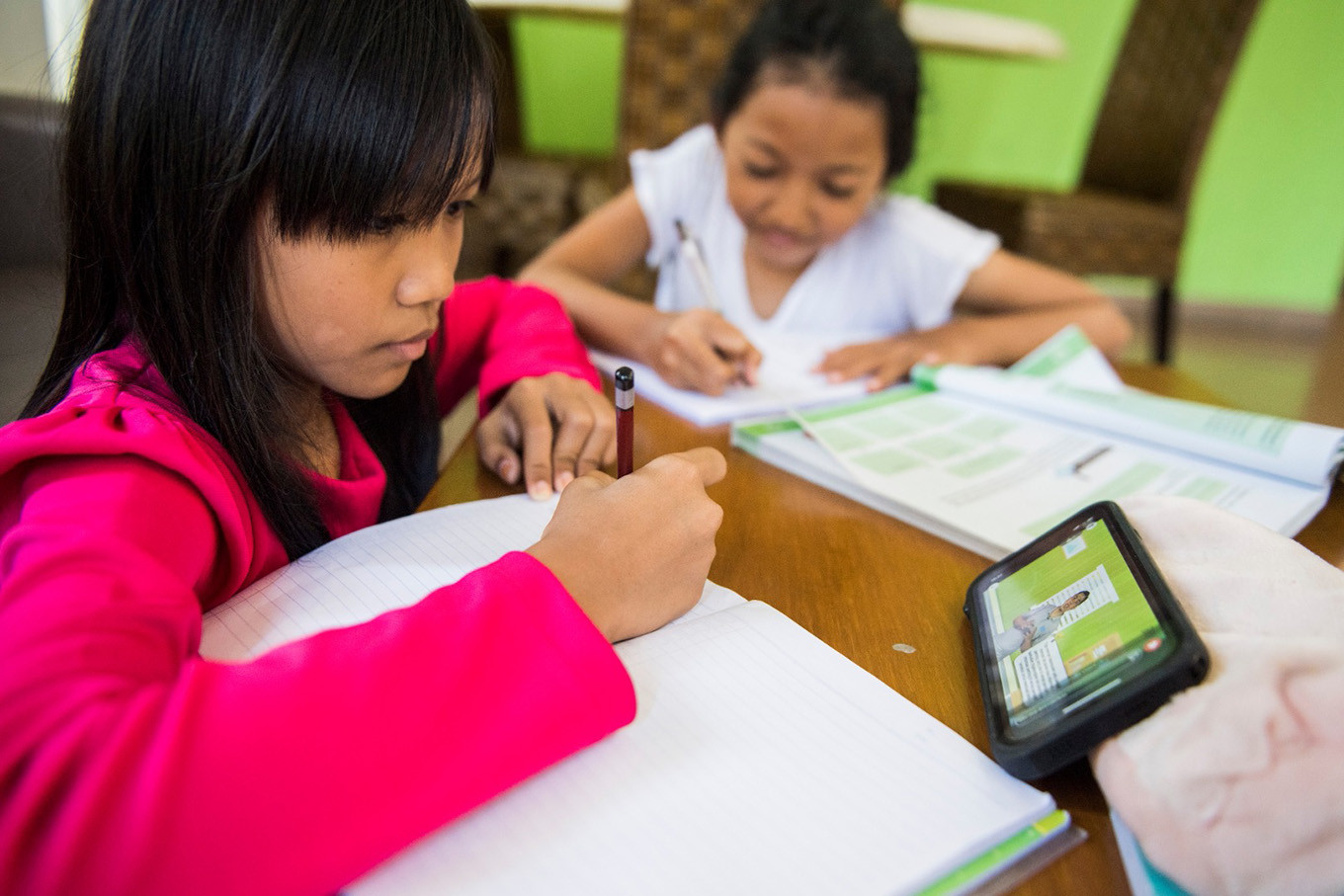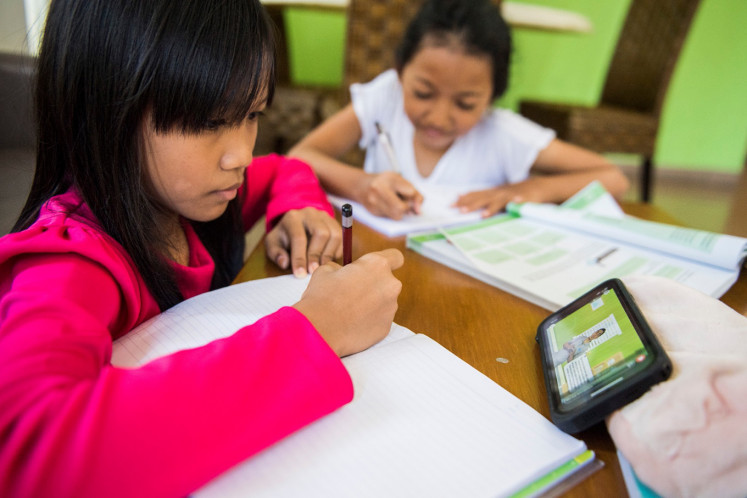Pandemic hits students’ education, future hard
Many forced to leave school to help families make ends meet
Change text size
Gift Premium Articles
to Anyone

T
ens of thousands of Indonesian students have dropped out of school, may see their international test scores drop by double-digits and are likely to lose hundreds of dollars in future earnings as mobility restrictions and the economic crunch hits educational activities, several studies have found.
With the pandemic hitting household finances, it is estimated that 43,031 children at the elementary school level and 48,175 children at the secondary level were forced to abandon their studies in the first four months of campus closures, mainly because their parents needed them to support the family’s income, according to a World Bank study published in August last year.
Meanwhile, Indonesia’s Program for International Student Assessment (PISA) reading score is estimated to drop by 11 points to 360 after the pandemic from 371 in the latest assessment in 2018, according to the same study. Reading was the main subject assessed in the 2018 PISA.
“This is important because as we know from international studies and from Indonesian studies that children exposed to early childhood education perform better over the whole education cycle,” Organization for Economic Cooperation and Development (OECD) economist Andrea Goldstein said on March 18, quoting the bank’s study during a virtual press conference.
He added that while Indonesia had shown improvements in terms of access to education, the country still needed to further develop its quality of education.
Read also: In Indonesia, sizeable budget not translating into quality education: Report
During the pandemic, almost half of the Indonesian students that dropped out of school did so to find work and help their family make ends meet as the parents’ incomes shrank amid soaring job losses and business closures, according to the World Bank. Many parents also struggled to keep up with school-related payments.
The study also projected a US$249 loss in students’ future annual earnings as the learning-adjusted years of schooling fell, due to the first four months of school closure, which was estimated to lower their earnings to $5,534.
Read also: SMERU finds incomes shrink for 75% of Indonesian homes in 2020
Furthermore, Indonesian students faced a myriad of hurdles in studying online, including a lack of internet-capable devices, poor internet connectivity and regular electricity blackouts, particularly in remote regions.
Only 5 percent of household respondents reported having internet connectivity at home, both in rural and urban areas, according to a separate World Bank survey covering 350 primary schools, 1,838 teachers and 3,368 Grade 4 students in 2019. The survey was published in November last year.

After ordering schools to close their campuses and shift to online learning in March of last year, the government plans to reopen all schools for the new academic in July, but parents and experts have expressed their concerns over the plan.
However, prolonged online learning has also sparked concerns, with three out of four parents saying they were worried their children would fall behind in learning, according to a survey involving 12,216 households between October and November 2020 by the SMERU Research Institute, the United Nations and the Australia-Indonesia Partnership for Economic Development (PROSPERA).
Read also: Parents, experts say July school reopening too early
SMERU reported that around one-fourth of surveyed parents said they either did not have enough time or the skills to assist their children in learning from home.
“School closure, social isolation and economic uncertainty expose children to other risks,” reads the report.
“This survey found that 45 percent of the [surveyed] households said they experienced behavioral challenge from their children. Of those, 20.5 percent said their children had difficulty concentrating on their studies.”









